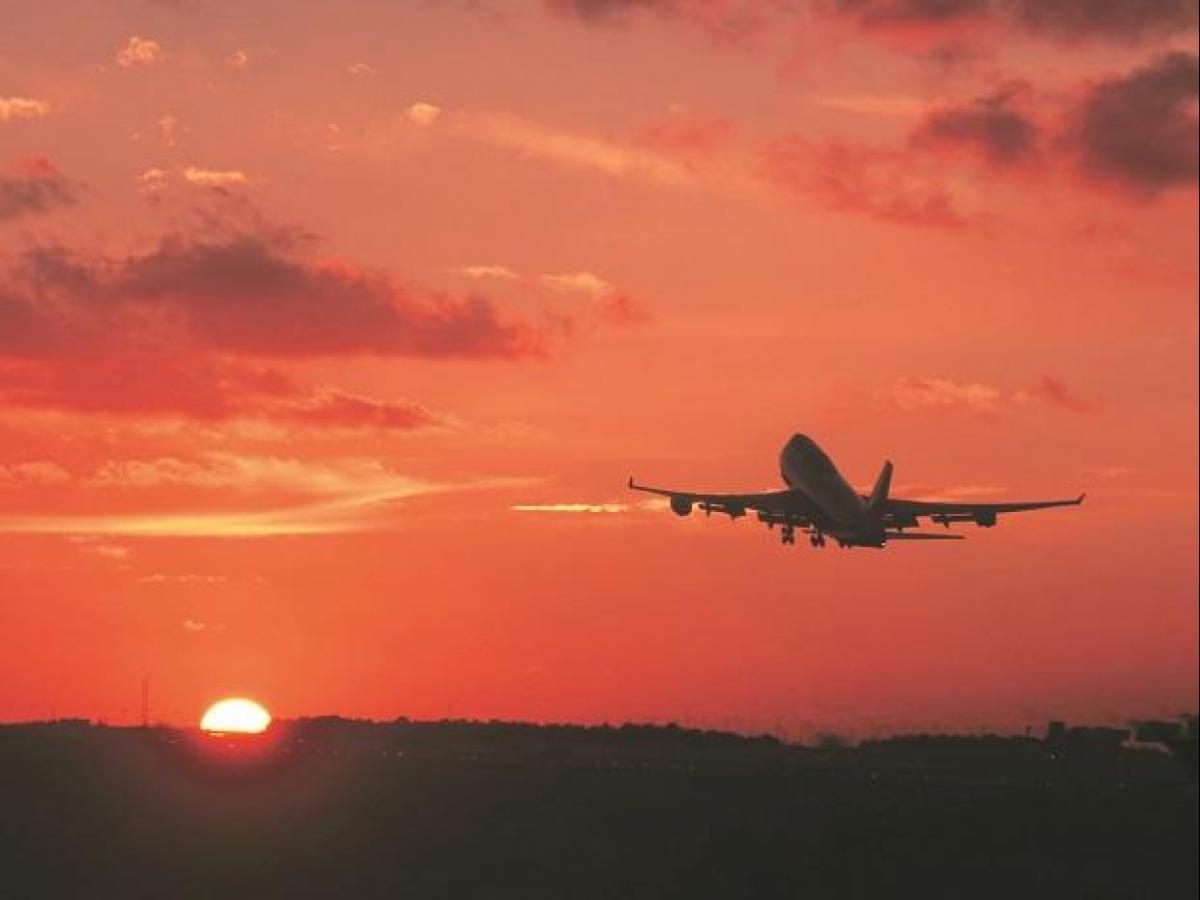Aircraft will take to the skies once again after being grounded for nearly 60 days.
New Delhi: Security protocols at all airports in India are going to see some changes beginning Monday, when aircraft take to the skies once again after being grounded for nearly 60 days, following a nationwide lockdown due to the Covid-19 pandemic.
The Central Industrial Security Force (CISF) that is responsible for securing all the airports in the country has laid down detailed security protocols that passengers will have to follow when flight operations resume from Monday.
According to the new protocols released, the CISF would not be physically scanning any of the tickets and ID cards of passengers entering the terminal building, but instead, the CISF has taken the help of technology to verify the identity of passengers where they will be using scanners to scan the ID cards and tickets from a distance to verify the identity of passengers entering the terminal building.
This has been done to ensure that passengers and CISF officials do not come in direct contact of passengers at the airport.
Even at the security screening area of the airport, where the CISF would earlier physically screen each passenger, the CISF has drawn out a new protocol to minimise contact between the screening official and the passenger.
According to the new protocol, CISF officials posted on duty at the SHA (Security Hold Area) would be wearing full Hazmat suit or PPE (Personal Protection Equipment) for their safety and that of the passenger. Physical screening of passengers has also been minimised and, according to the new guidelines, the CISF would only physically frisk passengers when the metal detector gives an alert.
For this purpose, passengers will also be asked to remove all metallic items from their body which would be put in a tray for scanning along with their hand bags. The tray would not be touched by any official from the CISF. The airport authorities have also been tasked with disinfecting each tray after use by a passenger.
Physical screening of passengers would only be done on a “case to case” basis, depending upon the threat perception, a CISF official told The Sunday Guardian.
The CISF official also said that when a case for physical screening comes before the CISF, physical distancing would be taken into consideration for physically screening the passenger.
The senior CISF official quoted above told this newspaper: “We have attached a long metallic rod with the hand held metal detector to ensure that physical distancing is maintained. Passengers should not think that security is not up to the mark since changes are being brought into the security protocols. Screening would take place for every passenger; it is just that we are adopting new means to ensure physical distancing. The metal detectors each passenger has to pass through are upgraded and will give a fair sense to the officer about the person’s threat perception while passing through them.”
“Apart from this, constant monitoring of CCTV would take place. The placement of all CCTV cameras has also been done strategically to cover each important area of the airport. Our officers are trained to study body languages and any person considered as a threat based on his or her movements would be taken to task,” the CISF officer said.
The CISF has also laid down some detailed standard operating procedure (SOPs) for their own staff who would be posted at the airport to minimise the risk of contraction of the highly infectious Covid-19 disease. According to sources within the CISF, the SOPs start right from the time the official boards the official vehicle to reach the airport and ends after he reaches home, post his duties.
The CISF officials would be brought into the airport in a sanitised bus by maintaining social distance. The officials would have to wear masks and hand gloves at all times while on duty. The officers on duty would not be allowed to make any physical contact with any person while on duty. They would check passenger ID cards from behind a glass door or shield; also, they would also be required to sanitise their hands at frequent intervals.
Sources also said that the officers on duty would not be allowed to go for lunch in a group. Each individual would have his/her lunch or meals in a separate sanitised place. Officers have been also been asked to minimise contact and avoid touching surfaces at the airport.
Apart from these guidelines, officials would also have to wash their uniforms each day with hot water and take a hot shower after reaching their residences everyday post their duty.
According to CISF officials The Sunday Guardian spoke to, these precautions have been taken by the force to ensure the safety of its officers in the field as more than 80 CISF personnel has tested positive in the last two months and one of them lost his battle against Covid-19.

